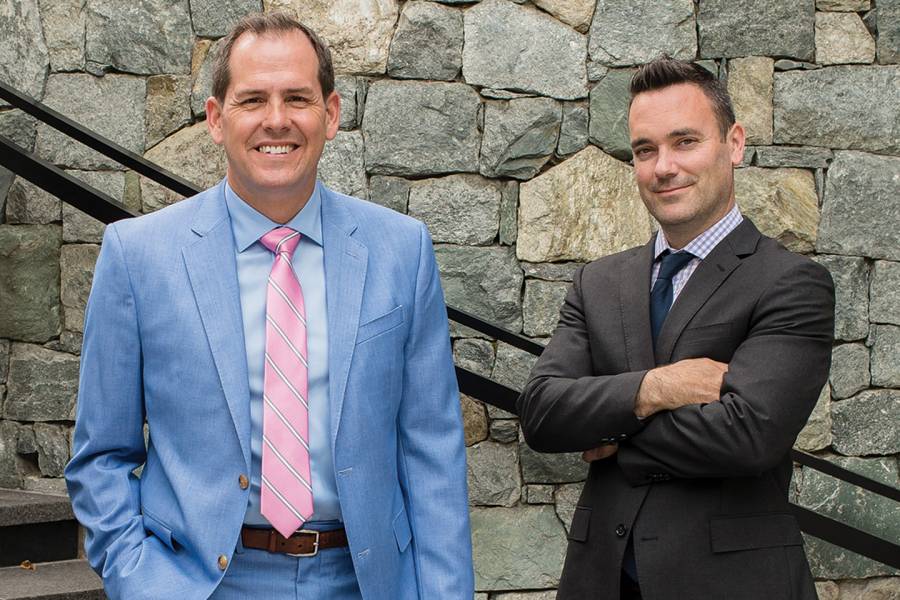Peter Crable, Ed '08 (MS), and Robert Dodd, Ed '18 (PhD), met as administrators trying to turn around a struggling public middle school in Montgomery County, Maryland. They quickly bonded as colleagues and friends, and found themselves frequently debating educational issues and brainstorming new strategies together. Their friendship led to the creation of Ed's Not Dead, a podcast they launched in 2017 with high school administrator Casey Siddons that averages 2,200 monthly listeners.
"Contrary to how some might feel, we think public education in this country is very much alive," says Dodd, now a high school principal in the same school district. Each week, the podcast covers pressing topics in education, such as the charter school movement, teachers unions, and federal and state policies. The trio also interviews leaders like Randi Weingarten, president of the American Federation of Teachers. One episode, with author Zaretta Hammond, a pioneer of culturally responsive teaching practices, garnered 1,500 downloads alone. They try not to take themselves too seriously though. In the podcast's early days, the hosts would open a recurring segment called "Dear Betsy"—during which they take aim at Education Secretary Betsy DeVos—with a bear growl sound effect to poke fun at her claim that a Wyoming school might need guns for protection against grizzly bears. "It just makes it a little more lighthearted and accessible," says Crable, now an assistant middle school principal in Silver Spring, Maryland. "We get a lot of inspiration from sports talk radio."
While the two take pride in informing their audience, they also acknowledge that it has impacted the way they do their jobs. Crable suggested implementing a study hall at his school so teachers can give students more individual attention, after hearing the idea from guests featured on the podcast. "Now we're two years into that program," he says. Adds Dodd, "I've been in the profession for 26 years and I still love what I do every day, but the podcast keeps me fresh and wanting to learn more."
Keep your classmates informed with a submission to alumni notes. Submit your information via email to: classnotes@jhu.edu. (Due to production deadlines, your information may not appear for an issue or two. By submitting a class note, you agree that Johns Hopkins can publish your note in the print and online edition.)








